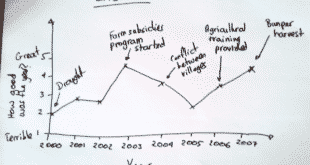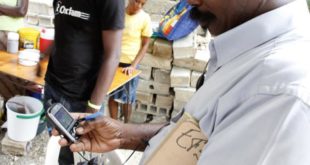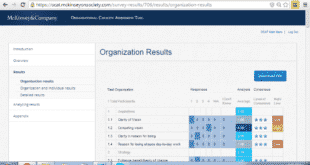There are countless great reasons for investing in and developing your Monitoring and evaluation (M&E) processes and systems. It is something that we should all being in development policy and practice to ensure that we are adding the most value to our work and that the work is having the …
Read More »Blog
Monitoring and Evaluation Tools for Projects
The range of tools available to monitor and evaluate projects is growing. As you apply for funding to implement your project, you will realise how important it is to remain accountable. In many cases, just having the right tools, with the ability to properly monitor your success and impact is …
Read More »Top 8 Tools for M&E Practice
Whether you’re looking to build a simple log frame, or to conduct a complex evaluative project, there are a number of useful tools and resources available to assist you. This list of tools, and their sources will assist you in staying up to date on current trends as your M&E …
Read More »5 Tools and Resources for Social Impact Assessment
The field of measuring social impact to evaluate or justify investment is a growing field, one which has the potential to attract substantial investment to solving development issues. This is a great opportunity to diversify your fundraising, but in turn, demands a clear statement of the measured impact you can …
Read More »Types of Monitoring and Evaluation Systems
The type of M&E system you choose to build, could determine how successful and relevant your M&E is. Finding the right fit it important. There may some standard steps but positioning your M&E system within a specific conceptual framework adds to the quality and makes any analysis far more systematic. …
Read More »10 Paid Internships in Monitoring & Evaluation
There are a number of prestigious internships available to aspiring development and M&E professionals. Working in development can be complex, and each professional decision can be significant in this fast-paced and competitive professional arena. Any one of these opportunities stands to fast-track young leaders in global development and will certainly …
Read More »5 Smart Indicators in Monitoring and Evaluation
SMART indicators, and the theory around using the SMART criteria to select what you measure has had a significant positive impact on the way the implementers think about the projects which they are doing. SMART indicators are: Specific Measurable Achievable Relevant and Time-Bound This useful framework is an excellent way …
Read More »Doing basic gender analysis for your project using Gender Analysis Tools
Download the Gender Tools Gender is an important topic in international development / aid. Most donors ask you to explain how your project will address issues related to gender, and it can be difficult to know how to address that part of the proposal unless you’ve done a gender analysis. …
Read More »Collecting data on smartphones and tablets with Device Magic
Your organisation probably uses forms, a whole bunch of them. Forms for leave requests, forms for acquisition requests, forms for inventory stocktake, baseline survey forms, satisfaction surveys, etc. Basically… a whole lot of forms and surveys and the majority of them are likely to be paper-based. A number of these …
Read More »Assessing your strengths and weaknesses with the McKinsey Organizational Capacity Assessment Tool (OCAT)
Run the online OCAT International development programs often try to build the capacity of organisations. In some cases, donors try to help implementing organisations improve how they work. In other cases organisations themselves realise there is room to improve. To help with this process the international consulting firm McKinsey & …
Read More »




